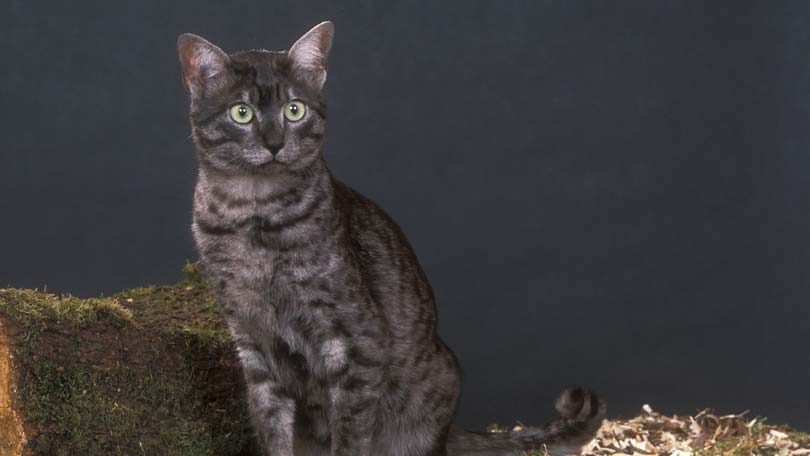
While most people think of cats as calm, gentle and even docile animals, aggressive cats are not as uncommon as you might think. Aggression is the second most common behavior problem in cats. Dogs are thought of as the aggressive pets because they can and often do bark and bite. Cats can yowl, hiss, spit, bite and scratch. And when they get done they go to their own corner of the house, and then ignore you and go on with their lives pretending nothing happened.
Every cat has its own unique personality and temperament. By design, cats have a few behaviors that have earned them the label of finicky and perhaps a bit snobbish. Some of these behaviors can also be seen as aggression. Pouncing on your feet while they are under a blanket or chasing toys and strings that are dragging are normal reactions.
Cats are naturally designed to hunt small animals including rodents and birds. To do this they have to be quiet, patient and a bit aggressive. In fact, most of their behavior is quite natural if you look at the reasons behind them.
Reasons for cats to show aggression
There is always more than one side to every story. Situations that cats can show aggression include
- Playing/Improper Socialization
- Defending their territory
- Fear or being startled
- Medical problems, especially if there are recent changes in health conditions
- Recognition issues (can be aggression to both familiar animals and/or family members)
- Lack of attention
- Over-stimulation
- Maternal instincts
- Hunting instincts
What Can be Done to Help Aggressive Cats?
Knowing that there is most likely a reason for aggression means that you have a choice. You can either excuse the cat’s behavior or help your cat to get past the aggressive behavior issues and become the pet you hoped she would be when you adopted her.
Dealing with Playful Kitties
One common reason for cats to be aggressive is play. Socializing a cat at a very young age is important and continued socialization as the cat ages is also important. Oftentimes what a cat considers to be fun you may see as being aggressive. Instead of getting angry at your cat for being a cat it is better to work on training it how to play a little nicer. Look into ways to train your cat not to bite or scratch. Behavior modification can be used to teach your kitty how to play nice.
Having New Territorial Issues or is it a Simple Misunderstanding?
If your cat is aggressive when you bring another of your family’s pets from the groomer or when you get home from your friend’s home you may be having a misunderstanding over territorial issues. The scent of other animals (both cats and dogs as well as other pets) can be clinging to your clothing or to your other pets’ fur, confusing your cat and making it appear as though you have brought a stranger into her territory.
Spend a few minutes re-familiarizing your pet with everyone after going to the groomer and give your cat time to realize it is you before you try to touch her when you get home. This can help her to recognize family members when they have new scents on them.
‘Fraidy Cat or Bully?
You most likely have heard a woman who has been startled shriek. Everyone knows what the squeal of a little girl who has been scared sounds like and a young man who is frightened usually lashes out. Cats aren’t that much different from these people. When you scare a cat you can cause it to yowl or strike in fear, or both. Most cornered animals will choose to fight rather than going quietly.
Often fear is seen as aggressiveness, especially when you are the one getting bitten or scratched up. Making sure you have let your cat know you are around and allowing your cat to come to you instead of approaching your cat can help break your cat of aggressive behaviors.
Not feeling well?
Have you ever met someone who gets nicer when they are sick? Everyone wants to be around them because they are so kind? I haven’t. Many people begin to rant and rave over little issues when they don’t feel well. It is as if getting sick gives them a license to become a witch if things don’t go their way. Cats can have this same problem.
If your cat is in pain, or is having changes in health making it not feel well, it may become grouchy. Striking out at others in the family including other cats, your family dog and even you is not that unusual for a cat that isn’t feeling well. Watching your cat’s behaviors you should be able to tell how your cat feels. If you notice a sudden change in behavior that doesn’t seem to have any other reason you should take your cat to the veterinarian.
Recognize Anything? See Something New?
If your cat has problems with vision it is possible that your cat can become confused and strike out at anything that she sees move. Not recognizing your family members can be scary for your cat so not only is she having vision problems but she is having issues with fear as well. Slow movements and soft voices in the house can help your cat to stop aggressive behaviors.
Attention or Not?
Cats enjoy getting attention – lots of attention. If your cat is not getting enough attention, or if you cat decides she has had more than enough attention, she can have fits of aggression. Giving your pet quality time is important. Making sure you don’t overdue it and overstimulate your cat when you give her affection is important as well.
Mommy to the Rescue!
There is not much that a mother won’t do to protect her babies if she feels they are in danger. If you have a mamma kitty you need to be careful to not do anything that she may perceive as a risk to her kittens, especially if you don’t want to have an attack cat on you like flies on garbage in June.
On the Hunt
Dinner has always been a quest for felines. Even though you serve your kitty daily, natural instincts will cause your cat to continue hunting practice. Pouncing and attacking your feet or their favorite toys is how cats sharpen their skills.
Aggressive cats usually have a reason behind their aggression. It is rare that a cat is just plain mean; it is possible, but rare. If you have gone through all of the possible reasons for aggression and you have taken your cat to the vet and there are still no answers, you may want to look into options with your vet or local rescue group. Not all animals were meant to be pets. Some cats have had a poor upbringing. After being abandoned and spending the early stages of life as a feral cat it is difficult to train some cats. Once you have done all you can sometimes we have to admit defeat and move on to a loving cat.





